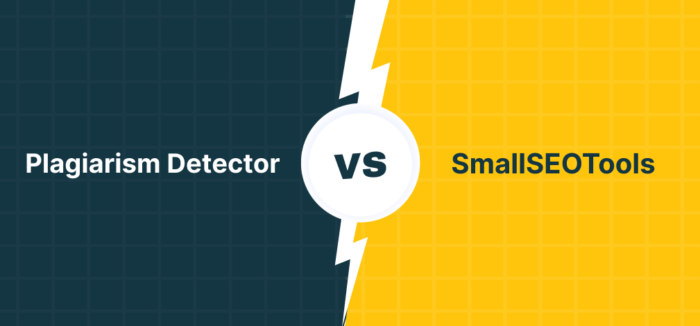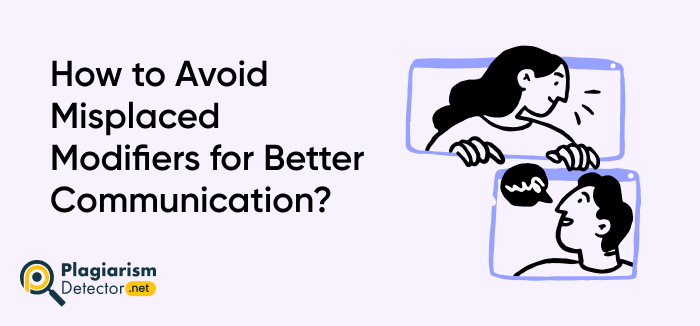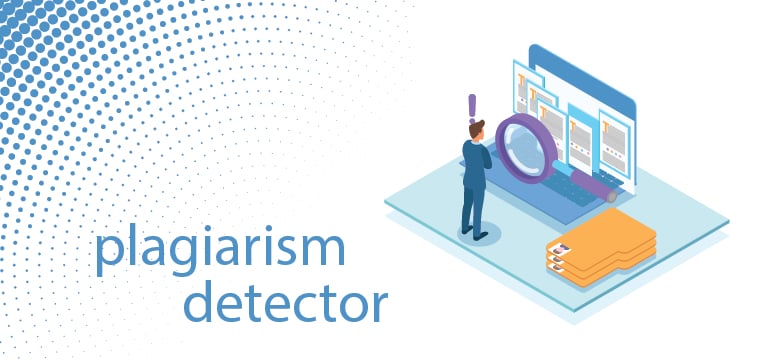PlagiarismDetector.net Vs SmallSEOTools Plagiarism Checker

Writing is a field that requires accuracy, precision, and originality. However, technological advancements have made it easier to copy and paste text from different resources. Some people might find it easy to strengthen their projects with others’ perspectives.
It may cause plagiarism, and we all know that it leads to penalties. Detection tools are built to identify copied content and flag it. However, their efficiency in detecting duplicated text is critical.
Therefore, we are comparing two of the most prominent duplicate content checkers to help you choose the one that fits your needs.
Introduction to PlagiarismDetector.net
PlagiarismDetector.net is an online tool designed to help users maintain originality in their writing. Whether you are a student, teacher, blogger, or content writer, it scans your text against multiple sources on the web to identify similarities.
It supports different file formats, offers deep search capabilities, and provides detailed plagiarism reports. With its user-friendly interface, the plagiarism detector aims to ensure your content remains authentic and free of duplication.
Overview of Plagiarism Checker by SmallSEOTools
The Plagiarism Checker by SmallSEOTools is a popular choice for quick and easy plagiarism detection. It helps students to copy-paste text or upload their assignment files for analysis and instantly compares the input against a wide range of online content.
This tool is free to use, supports multiple languages, and provides highlighted results to show exact matches. This platform integrates accessibility features with comprehensive SEO tools, combining academic integrity and digital visibility. Therefore, it is ideal for anyone checking text for duplication without complexity.
Plagiarism Detector Vs Plagiarism Checker — Accuracy Test
Both tools are highly accurate in their work, but let’s test them practically to choose the best plagiarism checker.
Test # 1: Exact Plagiarism
First, we will copy the text directly from a site and paste it into both tools. For this purpose, we have added a small section of ScienceDirect’s article, “Research Aircraft”.
Plagiarism Detector’s Result:
SmallSEOTools’ Result:
We copied and pasted the entire thing, and both tools detected it correctly. In addition, they highlighted the sources from which the content was sourced, adding transparency to their process.
So, both are winners here.
Test # 2: Partial Plagiarism
For the second test, we will use the exact text but with a few changes. We will paraphrase some of its parts with the help of an online paraphrasing tool to make them unique while keeping the others the same. This test will help analyze whether the tools can accurately identify unique content.
Let’s give it a go:
Plagiarism Detector’s Result:
We had changed the last sections of the content, and the plagiarism detector picked them out as unique. However, it left some sentences undetected in the first few lines. Otherwise, the results are quite precise.
SmallSEOTools’ Result:
The SmallSEOTools plagiarism checker has also provided detailed results. The output is similar to plagiarismdetector.net, but a little more comprehensive. It has detected phrases that are still the same as the original text. Moreover, it has left clauses that seem like common knowledge.
Test # 3: Paraphrased Content
Now, we will add the paraphrased version of the exact text. This time, all the sections are tweaked, but they are not humanized. This will allow us to see if the results are precise or not.
Plagiarism Detector’s Result:
The plagiarism detector has returned a 10% plagiarism score with paraphrased content. However, some parts still resemble the original text. This report is still reliable, but we also have another tool, so we will test that one.
SmallSEOTools’ Result:
Here, the tool has precisely highlighted the areas that are still plagiarized. However, the parts where the wording, tone, or sentence structure is changed are not flagged. Thus, this report is quite accurate.
Plagiarism Detector Vs Plagiarism Checker — Features
Here is a feature-by-feature comparison of both tools for better understanding.
Cost
The plagiarism detector offers a versatile free version with exquisite features. Premium plans with additional functionalities are available for more comprehensive checks.
SmallSEOTools’ plagiarism checker is completely free to use. It offers all features without any subscription or payment requirements. However, the premium version is better at detecting the content.
Accessibility
Plagiarismdetector.net is accessible via its website on various devices. It also offers a mobile application, which users can download from the Play Store and App Store.
Likewise, SmallSEOTools’ plagiarism checker is a web-based, mobile-friendly utility that ensures easy access across different platforms. You need to enter the text in the given field, and it will check the originality of your content.
Database Coverage
The plagiarism detector’s database is quite vast. It scans content against millions of online sources to detect similarities. The same is true for the plagiarism checker, which has an extensive database that checks content against numerous online sources to identify duplicate content.
Ease of Use
Both tools boast a straightforward interface. It allows users to easily input text, interpret results, and check the content without complications.
Input Methods
The Plagiarism Detector allows users to paste text directly or upload documents in various formats for checking. The same is the case for SmallSEOTools Plagiarism Checker. Both tools support at least three methods for content checking, including:
- direct text input
- file uploads
- URL inputs
Report Quality
The reports generated by Plagiarism Detector are quite detailed. They highlight matched content and sources to aid in content revision. However, they only show the percentage directly. For more information, users need to download the report.
Meanwhile, SmallSEOTools offers comprehensive reports with highlighted plagiarized sections and source links for reference. You can instantly review the report or check the full report.
Word Limit
The free version of the Plagiarism Detector has no word limit, so users can add as much text as they want.
SmallSEOTools’ Plagiarism Checker allows up to 1,000 words per check in the free version. Users can perform multiple checks for longer content. The premium version allows 30,000 words per check.
Last Words
With this comparison, we concluded that both tools are highly accurate. There is a minor difference in their workings. Plagiarismdetector.net is highly accurate. It detects duplicated content precisely. Meanwhile, smallseotools plagiarism checker has a straightforward layout and high accuracy.
However, we cannot declare one tool as a winner because they both are top-notch. Both are precise and provide accurate reports for plagiarism detection. So, you can choose either of them to check for plagiarism.



